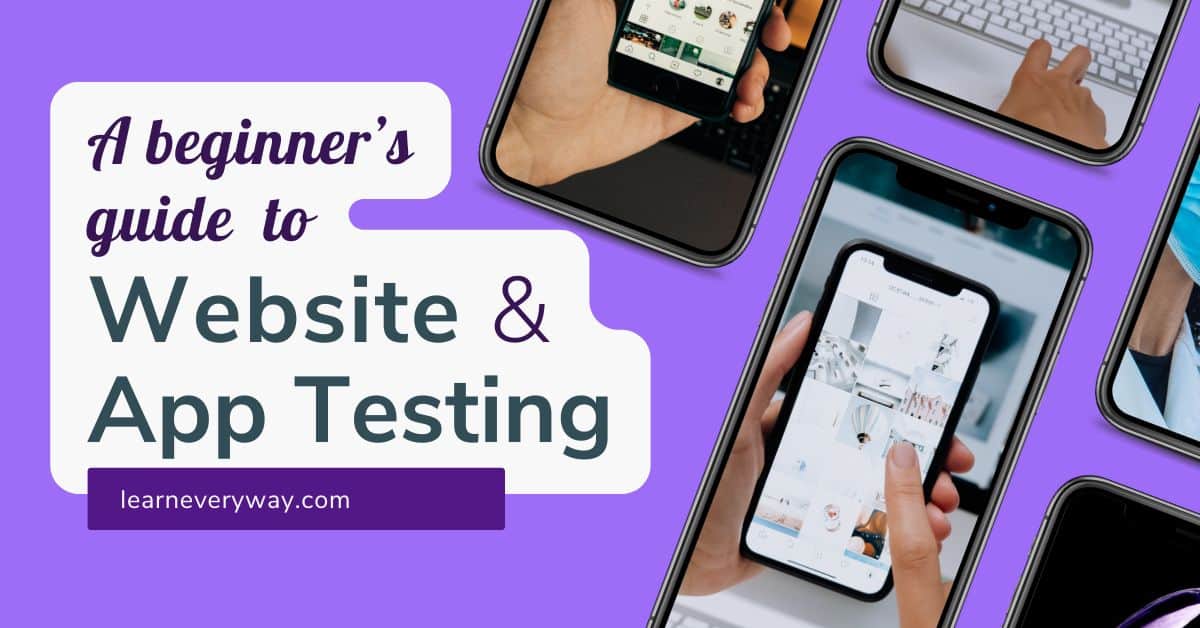Some of the links in this article are affiliate links, which means I may earn a small commission if you sign up or make a purchase through them, at no additional cost to you. Please note that my opinions and experiences are based on my own research and use of the platforms. I only recommend products and services that I believe will be valuable to my readers. Thank you for supporting my work!
How to Start an Online Coaching Business: A Comprehensive Guide
Starting an online coaching business can be an incredibly rewarding experience. Whether you’re an expert in a specific field or someone who’s experienced personal growth, countless people are eager for the knowledge and insights you have to offer. The good news? With the rise of online platforms, coaching is no longer confined to in-person interactions. It’s now easier than ever to build a thriving online coaching business that allows you to work with clients from all over the world.
In this detailed guide, I’ll walk you through the entire process of creating your own coaching business. Learn every way to start your online coaching business, from choosing your niche to scaling your services, while keeping in mind key strategies for marketing, pricing, and managing your business efficiently. Along the way, I’ll also share valuable resources, tools, and tips to make your journey smoother.
1. What Is Online Coaching and Why Should You Start?
Before exploring further into the logistics of how to set up an online coaching business, let’s first define what online coaching is and why it’s such a popular and lucrative option.
What Is Online Coaching?
Online coaching is a method of teaching and guiding individuals over the internet. It can involve one-on-one sessions, group sessions, or even self-paced courses. The best part? Online coaching is not limited to any specific niche. Whether you’re a business consultant, a life coach, a fitness expert, or even a relationship coach, there’s an online platform for you to help people transform their lives.
Why Start an Online Coaching Business?
There are many compelling reasons to start an online coaching business:
- Flexibility and Freedom: The ability to set your own hours and work from anywhere in the world is one of the main draws of starting an online coaching business. You’re no longer tied to a specific location or work schedule.
- Low Overhead Costs: Unlike traditional businesses, there’s no need for office space, utilities, or inventory management. Most of the tools you’ll need are affordable or even free.
- Scalability: As your business grows, you can expand your offerings by adding group coaching programs, creating online courses, or even hiring additional coaches to work for you. This makes it much easier to scale your business without overwhelming yourself with more clients.
- Global Reach: The internet allows you to connect with clients across the globe. Whether your target audience is in your hometown or halfway around the world, the opportunity to reach a larger market is unparalleled.
Learn every way to utilize these advantages by following a structured plan to build your coaching business.
2. Choosing the Right Niche for Your Online Coaching Business
Choosing the right niche is critical for your online coaching business success. When you specialize in a niche, you can better define your target audience and position yourself as an expert in that field. Without a clear niche, you risk blending in with every other coach in the market.
Why Niche Selection Matters
Selecting a specific niche allows you to:
- Attract your ideal clients.
- Build a targeted marketing strategy.
- Develop specialized coaching services that cater to a specific need.
How to Find Your Niche
Here’s a step-by-step approach to identifying a profitable niche:
- Assess Your Passions and Expertise: Start by asking yourself: What am I passionate about? What unique knowledge or experiences do I bring to the table? Reflect on your strengths, skills, and areas where you have deep knowledge.
- Research Market Demand: Once you’ve brainstormed a list of potential niches, it’s time to evaluate whether there’s demand for your services. Use tools like Google Trends to see what people are searching for in your area of interest. You can also browse forums or online communities to find common questions people have within your niche.
- Understand Your Target Audience: Who do you want to help, and what are their pain points? Whether you want to help people with career transitions, personal development, fitness, or business growth, understanding your audience’s needs is essential.
Popular Online Coaching Niches
Some popular and profitable niches for online coaching include:
- Life Coaching: Life coaching helps people in their personal growth, whether it’s achieving personal goals, overcoming limiting beliefs, or finding clarity in life.
- Business Coaching: Business coaches guide entrepreneurs, startups, and organizations in improving their operations, strategy, marketing, and team performance.
- Fitness Coaching: If you have a passion for health and wellness, fitness coaching allows you to help clients achieve physical health goals, such as weight loss, strength training, or improving overall fitness.
- Mindset Coaching: Mindset coaching is all about helping clients change their thought patterns, break free from limiting beliefs, and develop a growth-oriented mindset.
- Career Coaching: As a career coach, you help individuals navigate their career paths, whether it’s job searching, career changes, or improving their skills for advancement.
The more specific and targeted your niche, the better your chances of attracting your ideal clients.
3. Steps to Set Up Your Online Coaching Business
Now that you’ve chosen your niche, it’s time to take the necessary steps to get your online coaching business off the ground. Here’s how to set up your coaching business, step by step.
Step 1: Create a Solid Business Plan
Your business plan is a roadmap for your online coaching business. It helps clarify your goals, identify challenges, and create strategies to overcome them.
Key elements of a business plan:
- Goals and Objectives: Define what success looks like for your business in both the short term and long term.
- Target Audience: Outline who your ideal clients are, including their demographic details, pain points, and needs.
- Revenue Model: Determine how you’ll make money. Will you charge by the hour? Offer packaged programs? Perhaps a membership or subscription model?
- Marketing Strategy: Decide on how you’ll market your services. Will you use content marketing, paid ads, email campaigns, or all of the above?
A well-crafted business plan gives you clarity and helps keep your focus on your goals.
Step 2: Register Your Business
While not strictly required, registering your business can help establish credibility and professionalism. Depending on your country or region, you may need to get a business license or set up a legal structure (like an LLC or sole proprietorship).
This also makes tax management easier and helps you separate personal and business finances.
4. Building Your Website
Your website will serve as the digital storefront for your coaching business. It’s the first place potential clients will go to learn more about your services and contact you.
What Should Your Website Include?
To effectively attract and convert visitors into clients, your website should have:
- Homepage: This should quickly convey what you do, your value proposition, and why potential clients should choose you. Include a call to action (CTA) that invites visitors to book a consultation or sign up for a free resource.
- About Page: This is where you share your story, credentials, and why you’re passionate about coaching. It’s important to build trust with visitors.
- Services Page: Clearly list the different coaching packages or offerings you provide, with details about each service and pricing.
- Blog: Start creating content around your niche. A blog is not only great for SEO (search engine optimization) but also helps establish your authority and provides value to your audience.
- Testimonials: Social proof is powerful. Display positive feedback and success stories from past clients.
- Contact Page: Make it easy for potential clients to reach you. Provide an email address, a contact form, and your social media handles.
Website Building Platforms
Platforms like WordPress, Squarespace, and Wix make it easy to build a professional website without needing coding skills. If you’re unsure where to start, use coaching-specific templates that are often available on these platforms.
Best Website Builders for Coaches
5. Essential Tools for Online Coaching
To streamline your operations and deliver a professional service, you’ll need to invest in some key tools. These tools will help you manage scheduling, payments, communication, and marketing efficiently.
Must-Have Tools
- Video Conferencing Software: As online coaching revolves around virtual sessions, you’ll need reliable video conferencing tools like Zoom, Google Meet, or Skype. Choose a platform that’s easy to use and allows for smooth, uninterrupted sessions.
- Payment Processors: Ensure you can accept payments from clients easily by integrating services like PayPal, Stripe, or Square. This also helps you manage invoicing and receipts.
- Scheduling Software: Tools like Calendly or Acuity Scheduling allow clients to book their sessions online at a time that’s convenient for them, reducing back-and-forth communication.
- Email Marketing Platforms: Email is a powerful marketing tool. Use Mailchimp or ConvertKit to send newsletters, promotions, and coaching tips to your audience, keeping them engaged.
- Online Course Platforms: If you plan to offer digital products or courses, platforms like Teachable, Thinkific, or Kajabi allow you to create and sell online courses easily.
6. Creating a Personal Brand for Your Coaching Business
Your personal brand is crucial to attracting clients to your coaching business. Building a strong brand helps you stand out from the competition and communicate the unique value you provide.
How to Build Your Personal Brand
- Define Your Brand Voice: What makes you different? Whether it’s your coaching style or your personal story, find a way to make your brand memorable.
- Create Visual Consistency: Your brand colors, logo, and overall design should be consistent across all platforms (website, social media, etc.).
- Build Your Online Presence: Engage on platforms like Instagram, LinkedIn, and Facebook. Share valuable content and showcase your expertise.
7. Marketing Your Online Coaching Business
Now that your coaching business is set up, it’s time to focus on marketing and attracting clients. Without a solid marketing plan, it’s difficult to scale your business.
Effective Marketing Strategies
- Content Marketing: Start a blog or create videos that offer valuable tips related to your coaching niche. This helps build authority and trust.
- Social Media Marketing: Utilize social media platforms like Instagram, Facebook, or LinkedIn to share your expertise and engage with potential clients.
- SEO: Optimize your website and content for search engines. This will help people find you organically when searching for related topics.
- Referral Programs: Offer incentives for your clients to refer others to your coaching services. Word of mouth is incredibly powerful in the coaching industry.
8. Pricing Your Coaching Services
Pricing is one of the most important aspects of your business. Price your services too low, and you risk undervaluing your expertise. Price too high, and you might struggle to attract clients.
How to Price Your Coaching Services
- Market Research: Look at other coaches in your niche and see what they charge. This gives you an idea of the going rates.
- Value-Based Pricing: Base your prices on the transformation you provide to clients. Higher-value coaching may justify higher rates.
- Package Pricing: Instead of charging hourly rates, consider offering packages or bundles. This encourages long-term engagements and provides more stability for your business.
9. Scaling Your Coaching Business
As your online coaching business grows, you’ll want to find ways to scale. Scaling allows you to increase revenue without significantly increasing your workload.
How to Scale Your Coaching Business
- Group Coaching: Hosting group coaching sessions allows you to serve multiple clients at once, increasing your revenue while reducing time spent per client.
- Create Online Courses: Courses are an excellent way to provide value to clients without the need for constant one-on-one sessions.
- Automate: Automate marketing, scheduling, and client communications to free up time for more important tasks.
10. Managing Your Online Coaching Business for Longevity
Managing your online coaching business is about more than just getting clients. To sustain and grow, you need to focus on operations, customer service, and continual growth.
Key Management Tips
- Track Client Feedback: Regularly collect feedback to refine your services.
- Invest in Education: Continuously improve your coaching skills by learning new strategies, tools, and industry trends.
- Customer Relationship Management (CRM): Use a CRM tool to manage client information, track interactions, and build stronger relationships with your clients.
Frequently Asked Questions (FAQs)
- How long does it take to start an online coaching business? Starting an online coaching business can take anywhere from a few weeks to a few months, depending on how quickly you set up your website, find your niche, and begin marketing your services.
- What qualifications do I need to become an online coach? While formal qualifications are helpful, experience and knowledge are the most critical factors. Many successful coaches are self-taught or have learned through personal experience.
- How do I find clients for my coaching business? You can find clients through social media marketing, content marketing, SEO, paid ads, and word-of-mouth referrals.
- Can I scale my online coaching business? Yes! You can scale your online coaching business by offering group coaching, creating online courses, and automating various business processes.
Conclusion:
Starting an online coaching business offers endless possibilities for personal and financial growth. Learn every way to start and scale your online coaching business by following these actionable steps. With patience, hard work, and the right strategies, your online coaching business can thrive and become a fulfilling career.







